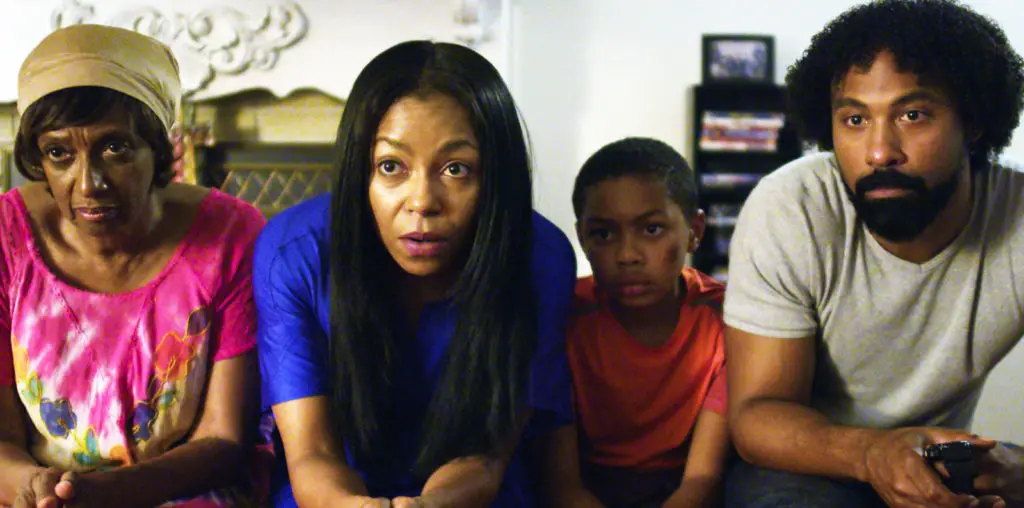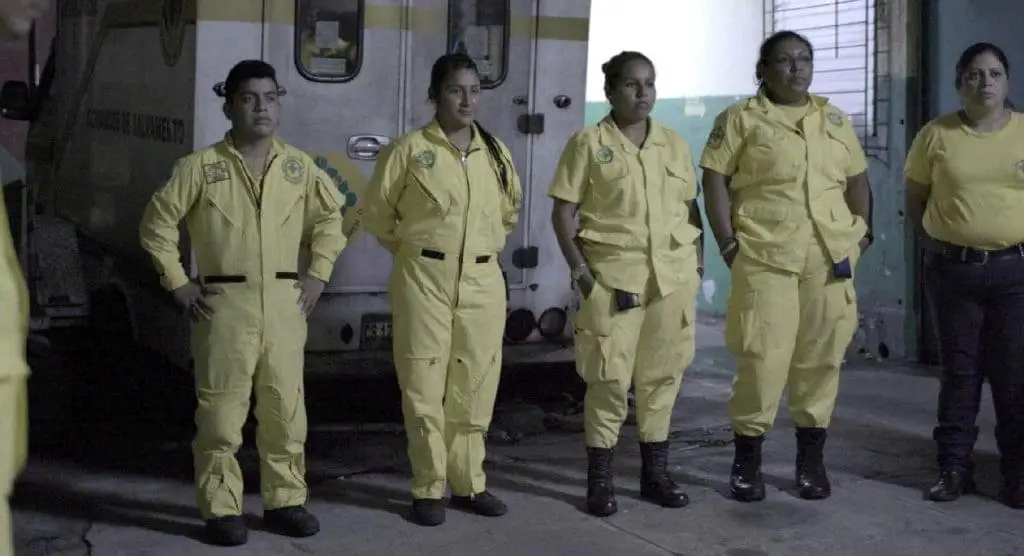
Wrestling for Jesus, or WFJ for short, is a wrestling league with all the elements of the mainstream professional wrestling we see today on TV: high-flying acrobatics, shouting, some blood, the triumph of Faces and the cheating of Heels. It also has some additional aspects, such as a call to prayer and active Christian ministry, and it doesn’t take place in the huge arenas but rather small gymnasiums, school assembly rooms or backyard rings.
Overseen by Tim, who wrestles as the villain “T-Money,” WFJ goes around to different venues, laying down the smack and spreading out the gospel. It’s not enough to cheer for the wrestlers to battle it out in front of you, you’ve also got to seriously consider your faith after. Meanwhile, behind the scenes, Tim’s life is slowly falling apart, as he deals with his father’s suicide and a series of unspecified marital concerns.
Nathan Clarke’s Wrestling for Jesus manages to give us a look at something that maybe we didn’t know existed, and like other documentaries with similar aims, it succeeds to that extent. It looks and sounds good, and for the most part you follow along with the path of the different wrestlers. That said, it isn’t until Tim’s problems become a driving focal point for the film that something of an overall narrative truly begins to form, and it moves out of the simply informative into something more resembling a story.
Which leads to my main criticism of the film, which is that there is a vagueness, or maybe comfort with the surface of things, that is allowed to settle in. For example, wrestlers from a different wrestling league, who previously worked with WFJ, speak respectfully of learning their craft there, but then mention that they would never work with them again. They allude to financial misconduct, or general ill-dealings going on by the non-profit… but no one specifically cites any one incident that causes them to think that way. The only issue mentioned involves a potential scandal between a former WFJ wrestler and Tim’s wife, but even that is mentioned and then moved beyond. As an audience, we know there’s so much more than what we’ve been shown.
Additionally, Tim often mentions issues with his family life, but keeps the conversation vague and non-committal until, suddenly, his wife is charging him with domestic abuse and he’s on the quick path to divorce. Sure, it’s hinted at that something isn’t right with the marriage earlier on, but why isn’t anybody saying anything concrete? I wasn’t looking for gossip, but perhaps more intense scrutiny by the filmmakers; perhaps they challenge those vague comments a bit more, try and get something out, or on camera?
But maybe the film isn’t supposed to be about the events that undid WFJ, and it was a choice by the filmmakers not to probe too deep into those matters, and because of how things played out, they just couldn’t avoid it in the end. Perhaps they were stuck with the tale they wanted to tell being tripped up by the reality at hand. Honestly, I don’t know, but for me, I wanted more information into how things could turn out the way they did.
In the end, Wrestling for Jesus is a brief glimpse of people trying to reconcile and publicly exercise their religious beliefs through a form of popular athletic entertainment. The cynical would call it just another gimmick, and the participants aren’t perfect, but they believe in what they’re doing and move forward as best they can.
This film was submitted for review through our Submission for Review system. If you have a film you’d like us to see, and we aren’t already looking into it on our own, you too can utilize this service.

